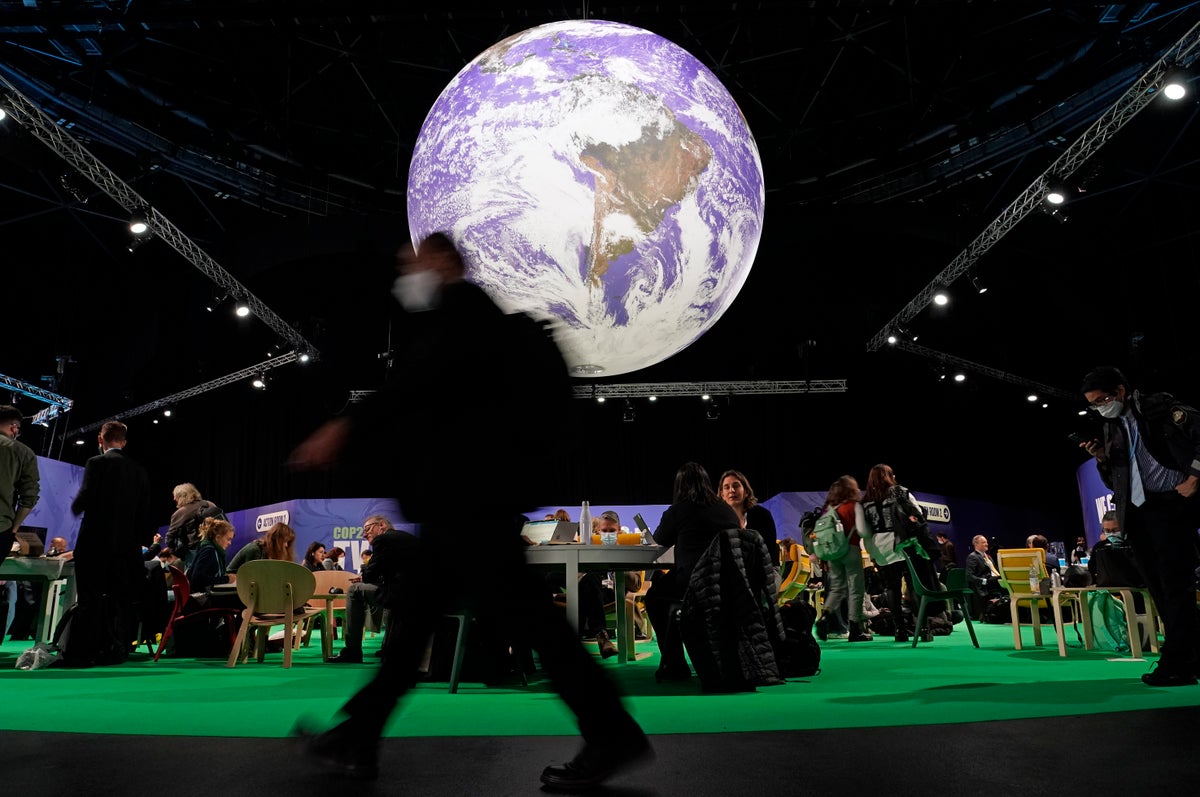
Nations resumed talks on tackling global warming Monday with the aim of shaping a deal that might put the world on track to prevent a dangerous increase in temperatures, as the U.N.'s top climate official called for deep cuts in fossil fuel use.
Diplomats began two-week negotiations in Bonn, Germany, despite failing to agree on a formal agenda because of differences on the topic of reducing greenhouse gas emissions.
The issue lies at the heart of the climate problem, since burning oil, coal and gas is responsible for most warming that's occurred since preindustrial times.
Simon Stiell, who heads the U.N. climate office, told The Associated Pess in an interview over the weekend that limiting global warming to 1.5 degrees Celsius (2.7 Fahrenheit) will require a phaseout of fossil fuels, something many oil-producing countries have pushed back on.
Environmental campaigners have lamented that this year's U.N. climate summit will be held in the United Arab Emirates, a major fossil fuel exporter, and presided over by the chief executive of the Abu Dhabi National Oil Company. The host nation has pushed back against this criticism.
Stiell said that having leaders gather in Dubai this fall should be seen as an opportunity.
“We have a president (for the talks) who has significant experience in the oil and gas sector, in an oil and gas producing nation,” he told reporters in Bonn. "It provides an opportunity to ask some very difficult questions, but also to seek some very difficult but needed answers.”
Asked about calls for curbs on the presence of fossil fuel lobbyists, Stiell said that his office is looking into ways of ensuring greater transparency based on the experience of previous meetings, known in U.N.-speak as Conferences of the Parties, or COPs.
“Some of those measures may actually be put in place before the next COP, to help ensure the transparency and the integrity of the process,” he said, without elaborating.
Stiell said the failure to adopt an agenda at the start of the technical talks in Bonn was “not desirable, but it's not uncommon.”
“There will be consultations with parties with regard to the unresolved agenda items. But the important thing is work has started,” he said, adding that he hopes negotiators from almost 200 countries can have a "productive and constructive engagement.”
Asked about the importance of reducing fossil fuel use, Stiell said that “the science is clear.”
“Halving emissions by 2030 and reaching ‘net zero’ by 2050 requires a deep cut and reduction, the phasing out, phasing down of all fossil fuels,” he said.
He welcomed the steep rise in renewable energy production, with unprecedented levels of investment and deployment of solar and wind power in recent years.
“That’s one half of the equation,” Stiell said. “But the other requires those deep cuts in fossil fuel production and consumption, and that we are not seeing.”







